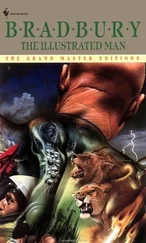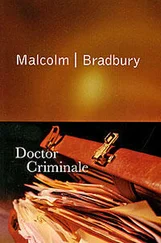Malcolm Bradbury - The History Man
Здесь есть возможность читать онлайн «Malcolm Bradbury - The History Man» весь текст электронной книги совершенно бесплатно (целиком полную версию без сокращений). В некоторых случаях можно слушать аудио, скачать через торрент в формате fb2 и присутствует краткое содержание. Жанр: Современная проза, на английском языке. Описание произведения, (предисловие) а так же отзывы посетителей доступны на портале библиотеки ЛибКат.
- Название:The History Man
- Автор:
- Жанр:
- Год:неизвестен
- ISBN:нет данных
- Рейтинг книги:3 / 5. Голосов: 1
-
Избранное:Добавить в избранное
- Отзывы:
-
Ваша оценка:
- 60
- 1
- 2
- 3
- 4
- 5
The History Man: краткое содержание, описание и аннотация
Предлагаем к чтению аннотацию, описание, краткое содержание или предисловие (зависит от того, что написал сам автор книги «The History Man»). Если вы не нашли необходимую информацию о книге — напишите в комментариях, мы постараемся отыскать её.
The History Man — читать онлайн бесплатно полную книгу (весь текст) целиком
Ниже представлен текст книги, разбитый по страницам. Система сохранения места последней прочитанной страницы, позволяет с удобством читать онлайн бесплатно книгу «The History Man», без необходимости каждый раз заново искать на чём Вы остановились. Поставьте закладку, и сможете в любой момент перейти на страницу, на которой закончили чтение.
Интервал:
Закладка:
'He's trying to nullify you,' said the Philosophy man, 'steal your fire.'
'He couldn't,' said Barbara, 'Howard's too radical.'
'Watch it, they'll charm you,' said Barbara later, her foetal bump against the dashboard, as they drove home through the darkness into Watermouth. 'You'll become an establishment pet. A eunuch of the system.'
'Nobody buys me,' said Howard, 'but I really think there's something for me here. I think this is a place I can work with.'
But that was in the late autumn of 1967; and after 1967 there came, in the inevitable logic of chronicity, 1968, which was the radical year, the year when what the Kirks had been doing in their years of personal struggle suddenly seemed to matter for everybody. Everything seemed wide open; individual expectation coincided with historical drive; as the students massed in Paris in May, it seemed that all the forces for change were massing everywhere with them. The Kirks were very busy that year. On campus the Maoist and Marxist groups, whose main business up to now seemed to be internecine quarrel, found a mass of activist support; there was a sit-in in the administration building, and a student sat at the Vice-Chancellor's desk, while the Vice-Chancellor established his own office in the boiler-house and tried to defuse the tension. The Revolutionary Student Front went to see him, and asked him to declare the university a free state, a revolutionary institution aligned against outworn capitalism; the Vice-Chancellor, with great reasonableness, and a good deal of historical citation, explained his feelings of essential sympathy, but urged that the optimum conditions and date for total revolution were not yet here. They could probably be most realistically set some ten years away, he said; in the meantime, he suggested, they should go away, and come back then. This angered the revolutionaries, and they wrote 'Burn it down' and 'Revolution now' in black paint on the perfectly new concrete of the perfectly new theatre; a small hut was set on fire, and seventeen rakes totally destroyed. Hate and revolutionary zeal raged; people in the town poked students on the buses with umbrellas; there were demonstrations in the main square in town, and some windows were smashed in the largest department store. The faculty, 'as faculty do, divided, some supporting the radical students, some issuing statements recalling students to their duties. People stopped speaking to people, and offices and professors' rooms were broken into and files removed. A state of minor terror reigned, and minds were stretched and strained; ancient marriages broke up, as one party went with the left, the other with the right; all old tensions came to the surface. But Howard was not divided; he joined the sit-in, and his intense, small face was one of those that could be seen, by those locked out, peering forth from the windows, shouting, 'Free thought is at last established,' and 'Critical consciousness reigns,' or waving the latest slogans from Paris. In fact he was an inevitable focus, and was very active everywhere, radicalizing as many people as he could, leaving the sit-in to speak to workers' groups and trades union meetings. Their terrace house became a meeting place for all the radical students and faculty, town drop-outs, passionate working communists; there were posters in the windows that said 'Smash the System', 'Reality does not exist yet', 'Power to the people'. And as for the Kaakinen-plan university, and its pious modernismus and concrete mass, and the radical new education, the new states of mind and styles of heart, enshrined inside it, that all came to seem to Howard a hard institutional shell designed to restrain and block the onward flood of consciousness. Not radical enough. Nothing was radical enough for the Kirks that year. Howard stared at the campus from the sit-in and what he said was: 'I think this is a place I can work against.'
The summer realized the Kirks as they had never felt realized before. Time no longer seemed a contingent waste in which one passed out one's life; it was redeemable; the apocalypse stood at hand, the new world waited to be born. All present institutions and structures, the structures whose nature he had so carefully elaborated in his classes, now seemed to be masks and disguises, crude acts of imposition set over the true human reality, which came real around him. A massive, violent impatience overcame him; he looked around, and saw nothing but false and corrupt interests checking the passionate movement towards reality. But the times were his times; his beliefs were at last activated and made real. He found, too, that he was good at persuading people that this was so, that a new era of human fulfilment and creativity was at hand. He was busy at many meetings; and lots of people, on the edge of breakthrough, came to talk to him. He discussed with them their struggles with the vestigialities of the past, their breaking marriages. Barbara, large and yellow-haired, grew alive with expectation too; she began to push at the world. She felt herself on the front line again; the baby was old enough to leave. But now her old idea that she would go into social work, which meant a formal, institutional course, seemed just a compromise with the system; she wanted more, to act. She helped start a community newspaper. She led consumer protests. She shouted, 'Fuck,' in council meetings. She joined in with a group of Women's Libbers and led consciousness-raising sessions. She hurried women to clinics and welfare services, hoping to strain them to the point of collapse, so the people could see how they had been duped. She arranged sit-ins at doctors' surgeries and employment agencies. She helped get a Claimants' Union started. The sub-culture, the counter-culture, clustered around them, and the parties they went to, the parties they held, were now of a different kind activist occasions, commemorating the anniversary of Sharpeville or the May struggle in Paris, and ending in a plan for a new campaign. The running motto was 'Don't trust anyone over thirty'; it was in the summer of 1968 that Howard was thirty, and Barbara thirty-one. But they did trust themselves, and they were trusted; they were on the side of the new.
But that was in 1968; now time has passed. Since then much has been going on with the Kirks, but the intimacy, warmth and consensus of that year, seems hard to recover. They look for it; they have a strong sense of something that was undelivered then, and a hazy dream still shimmers ahead of them: a world of expanded minds, equal dealings, erotic satisfactions, beyond the frame of reality, beyond the limits of the senses. They remain in their terrace house, and they stand somehow still on the fulcrum between end and beginning, in a history where an old reality is going and a new one coming, living in a mixture of radiance and radical indignation, burning with sudden fondnesses, raging with sudden hates, waiting for a plot, the plot of historical inevitability, to come and fulfil the story they had begun in bed in Leeds after Hamid had slept with Barbara. They are busy people. Howard, with a group of students and a deep radical intent, has had a rehabilitation study done of the entire area where they live, part of a grass-roots exercise in local democracy. The local council, now impressed with Howard's urbanology, have accepted this scheme; this has the beneficial consequence that the Kirks will keep their house, while the surviving houses in the terrace will ultimately be restored. Beyond the windows of their house still stretches the waste, the transitional acres of devastation, the touches of reconstruction. Children have made playgrounds in the rubble, out of which, at a distance, prod grey, shuttered concrete tower blocks, new precincts, the terminus of the urban motorway. In the distance, across the mess, signs flash, saying 'Fanfare', ' El Dorado ', 'Life Again Boutique'. Jet fighters fly overhead; motorscooters whine in the streets round about; there are muggings in the spaces between the bright sodium lights. By day, adolescent bottle-breakers and five-minute fornicators inhabit the rubble around them. At night the Kirks can stand inside their house, fresh from Wiener Schnitzel, and see a flicker of small lights spurting in the derelict houses across the way: the meths drinkers and wandering hippies creep constantly into occupation, making an independent life-style, groaning in the darkness, sometimes setting fire to themselves. The Kirks respond each according to his competence: Barbara takes them Thermoses of coffee and blankets, and Howard counts them and, in the basement study he has now made-a guilty item in their now all too passable life-he writes up the results in indignant pieces for New Society and Socialist Worker.
Читать дальшеИнтервал:
Закладка:
Похожие книги на «The History Man»
Представляем Вашему вниманию похожие книги на «The History Man» списком для выбора. Мы отобрали схожую по названию и смыслу литературу в надежде предоставить читателям больше вариантов отыскать новые, интересные, ещё непрочитанные произведения.
Обсуждение, отзывы о книге «The History Man» и просто собственные мнения читателей. Оставьте ваши комментарии, напишите, что Вы думаете о произведении, его смысле или главных героях. Укажите что конкретно понравилось, а что нет, и почему Вы так считаете.











